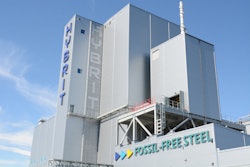
As national governments give greater attention to reducing carbon emissions, action in the transport sector, and in particular that attributable to road traffic, is ever more critical to reducing environmental impacts and supporting the transition towards a low-carbon and circular economy. With the shift to new fuels and powertrain electrification it is more important to use life-cycle assessment (LCA) approaches in assessing the relative impacts of different options on a holistic basis.
This vehicle LCA study, the production of which was led by Ricardo and funded by the European Commission, DG Climate Action, is believed to be the broadest and most comprehensive study of its kind to date. Most significantly, the findings from the work confirm the significant environmental benefits of electrified powertrains (particularly of battery electric vehicles) for all of the road vehicle types assessed.
“Our assessment has shown that over their entire life-cycle in the EU, new electric vehicles are expected to have significantly lower impacts on the climate compared to conventional combustion engined vehicles,” commented Nikolas Hill, project manager and knowledge leader in transport technology and fuels in Ricardo’s sustainable transport team. “The study also highlights key environmental impact hotspots for different road vehicle types, and illustrates the variability in impacts expected for different use cases local conditions in European countries, particularly due to differences in the carbon intensity of the national electricity generation mix.”
The report assesses the lifecycle impacts of representative European light and heavy-duty vehicle types (cars, vans, lorries, buses and coaches) with 65 different vehicle types and powertrain combinations. It considers the production of 60 fuel chains for conventional and alternative fuels as well as 14 different forms of electricity generation, the impacts of vehicle (and battery) manufacturing, and vehicle use and maintenance including different ‘end of life’ scenarios. In addition to greenhouse gas emissions, the report also assesses a number of other environmental impact categories, ranging from resource use, including cumulative energy consumption, mineral and metal resource depletion and water scarcity, to airborne pollutant emissions (like particulates and nitrogen oxides), and human- and eco-toxicity.
The findings from the report also highlight the positive impact of existing European Union policy in directly supporting the move to a more circular economy and the initiatives aimed at developing a sustainable value chain for hybrid and fully electric vehicles and their batteries in driving down industrial emissions and improving resource efficiency. The analysis also identifies further opportunities to improve existing policy instruments, such as in the areas of battery re-use or recycling and to further incentivize improvements in the operational energy efficiency of electric powertrains.
“This has been an extremely important and ambitious project in terms of its scope and scale,” continues Hill, “and we’ve used a range of robust and novel methodologies and datasets to expand understanding in this area. The study has also helped provide clarity on the relative importance of a wide range of key assumptions affecting the environmental benefits of electric vehicles. We’re very proud of the research, analysis and methodology we’ve developed for this report, which will help European policy makers to better understand and subsequently reduce the impacts of transport on the environment and health.”
A Vehicle LCA Results Viewer has also been published alongside the report on DG Climate Action’s website, allowing stakeholders to explore the complete set of results for electricity production, fuels production and the overall vehicle LCA.
The report Determining the environmental impacts of conventional and alternatively fueled vehicles through LCA and its associated documents are available for download from at DG Climate Action’s web pages.
This study is the latest in a long series of projects that Ricardo’s team of LCA experts have completed for public and private clients. Further details, webinars and blogs can be found Ricardo’s LCA page.



















